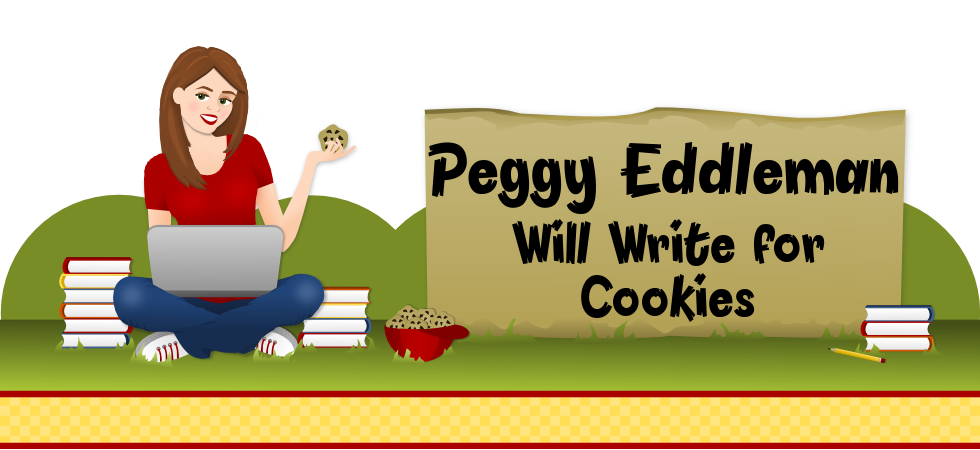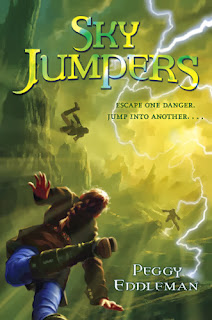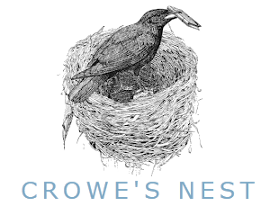There are three things that inspired almost every aspect of Sky Jumpers— the setting, the genre, and the main character. For this book the thing that came first was definitely the setting.
Six years ago, I was on an airplane, flying home from Disney World with my family on a day when the entire country was covered in clouds. For 3 ½ hours, I stared out the window at the wrong side of the clouds, imagining how it would feel to jump out of the plane and have the clouds catch me. And how amazing and thrilling and peaceful that would feel. I couldn't shake the feeling, so I started imagining what could've happened to our world that would've left behind a layer of air dense enough to catch someone's fall. And then, instead of looking like clouds, I imagined what would kind of conflicts would happen if it were both deadly and invisible. And the Bomb's Breath was born. Over the next 9 months, I spent a lot of time developing the setting and world building, creating characters, and coming up with the plot. Once I started hearing my main character's voice when I thought through the plot, I started writing.
I wanted Sky Jumpers to take place in an area that was wide open and empty, to mirror the population after the bombs hit. So I chose Nebraska. But I also needed mountains by the town, so that the people who lived there could be near both the protection and danger that the Bomb's Breath provided. So I thought about what was most unexpected and ironic- that the people would live inside the crater made by the thing that wiped out most of the earth's population. I live at the foot of the Rocky Mountains, in a safe, protected, happy valley. So, to me, being nestled in a valley surrounded by mountains means safety and protection. I wanted that same safety for Hope’s town, and then for that safety to be threatened.
When I was a kid, I saw my first post-apocalyptic movie, and I was sold on the genre. I love the concept that since there are so few people left in the world, that very NORMAL people have to be the ones to step up to heights greater than they’ve ever had to before. Very normal people have to become the heroes.
Although I wanted Sky Jumpers to be post-apocalyptic, I didn’t want it to be dystopic. I think dystopic environments are so appealing to teens (and to me!), but I think things are a little different for middle grade readers. They have their whole lives ahead of them– the whole world ahead of them– and they want to know that the world is going to be one worth living in, and that they're going to flourish there. I love introducing kids who might not have experienced post-apocalyptic stories to a world that has a lot of hope, and to know that they can make a difference in whatever world they’ll grow up in.
Hope’s personality is all her own, but the concept of her came from my daughter. When she was in first grade, she really struggled with reading, and everyone freaked out. (Which, for the record, was AWESOME. Because then she got the help she needed early on, and is a great reader now.) At six, she could hold her own when bantering with even adults. At six, she started playing football (very well, I might add), and had no problem at all being the only girl in a league of only boy football players. At six, she could do mental math faster than anyone else in her class. But at six, she couldn’t do the one thing that mattered most—she couldn’t read well. And none of the other amazing things about her mattered, because reading mattered more than anything. The concept kind of fascinated me, and I knew I wanted to make a character who couldn’t do the one thing that mattered most in her town.
Sky Jumpers takes place in the town of White Rock, forty years after the green bombs of WWIII wiped out most of the population and virtually all technology. They've had enough time to build things, so they're past the point of fighting to survive, and have moved on to looking toward the future in an effort to regain some of what was lost. Hope, grew up with the way things are being "normal," because that's how they always were for her. But there are people in her town who were alive before the bombs, and know what it was like to live with all the technology we have now (and more). So, unlike the first time when technology advanced, people actually knew what was possible, and wanted to try to find a way to get to that same point again. Inventing is extremely important to that plan. And my main character, Hope, can't do it.
Hope has a lot of strengths— leading others, knowing when to take risks, and being loyal. But her, along with her town, don’t seem to notice those strengths, sometimes, when you're bad at the thing that matters most, your strengths can get overlooked.
I think that’s a very universal thing. Sometimes we worry so much about our weaknesses, and how prominent they are, and it keeps us from seeing the truly remarkable things about ourselves. And everyone has truly remarkable strengths. Not only do they make us unique, but they're what give us the power to change the world.
I talk about this a lot in my school visits. And I hope that when kids read Sky Jumpers, that they realize that they have some pretty great strengths, too, and that those strengths will help them to really change the world.































